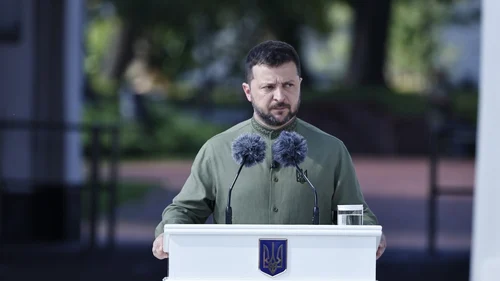Ukrainian President Volodymyr Zelenskiy has announced the successful return of 10 Ukrainian civilians who had been held captive for several years in Russia and its ally Belarus. This exchange marks a notable diplomatic achievement for Ukraine in its efforts to bring its citizens home.

Zelenskiy took to Telegram to share the news, stating, “We managed to bring back 10 more of our people from Russian captivity, despite all the difficulties.” The President extended his gratitude to the team dedicated to securing the release of the captives, specifically mentioning the Vatican’s involvement in the process.
Ukrainian officials have linked this civilian release to a broader prisoner of war exchange conducted earlier this week, where each side reportedly returned 90 detainees. However, Russia has not commented on the exchange, and Ukraine has not mentioned any release of Russian captives.
Among those freed is Nariman Dzhelyal, the deputy head of the assembly of the ethnic Crimean Tatar community, who was seized by Russian occupation forces in 2021. His release is particularly significant given the ongoing tensions surrounding the Russian-annexed Crimean peninsula.
The group of released captives also includes two eastern rite Catholic priests who had been captured by Russian forces in the occupied port of Berdiansk on the Sea of Azov. Additionally, five of the liberated individuals had been held in Belarus, which has been a key ally to Russia in its 2022 invasion of Ukraine.

Two other civilians, detained since 2017-2018 on charges of espionage and treason in areas of eastern Ukraine controlled by Russian-backed separatists, were also among those released.
Dmytro Lubinets, Ukraine’s parliamentary commissioner for human rights, hailed the exchange as historic, emphasizing its importance for Ukrainian families and expressing hope for future returns.
This successful prisoner exchange represents a glimmer of positive news amidst the ongoing conflict between Ukraine and Russia. It highlights the continued efforts of Ukrainian authorities to secure the release of their citizens and maintain diplomatic channels even in times of severe tension. As the situation evolves, the international community will be watching closely for any signs of further diplomatic progress or potential for de-escalation in the region.
Reuters



